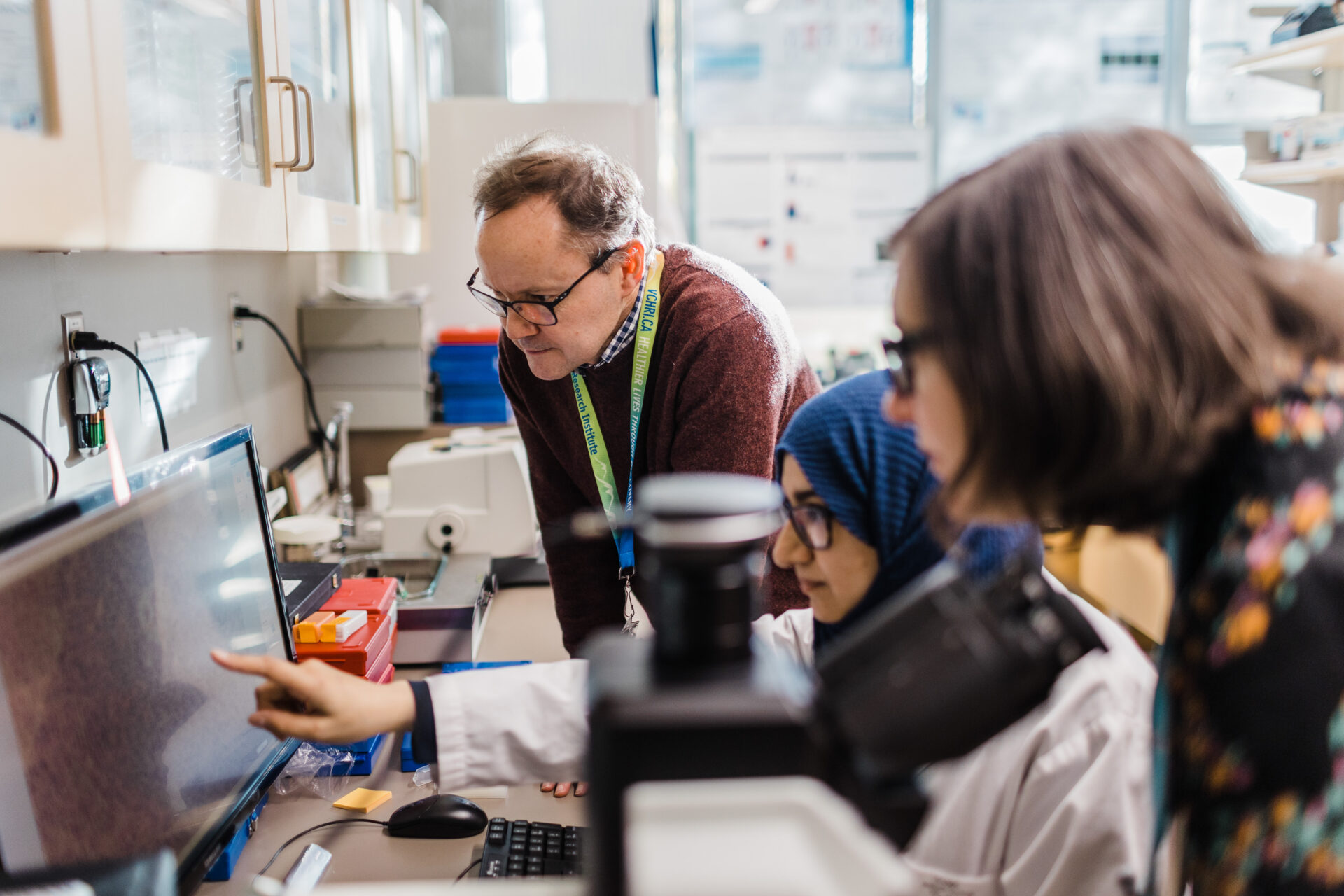Dr. Maria Barbolina is a 2013 Liz Tilberis Early Career Award grant recipient. In this interview with OCRF’s Sarah DeFeo, Dr. Barolina discusses her research and what it means to receive a grant from OCRF.
Sarah DeFeo: Tell us a little about yourself.
Maria Barbolina: I live in Chicago now, but my life started on the other side of the world: I grew up in a suburb of Moscow, in Russia, with my mother, grandmother, and a younger brother. I come from a family involved in science– medicine, engineering and research. My husband is also an academic scientist here in Chicago. We have a 4-year old daughter and 1.5-year old son, and while between work and two young children I don’t have much time for hobbies, I do love to make my own jewelry out of beads and semi-precious stones. As a family, we like to stay active and do many outdoor activities in the Chicago area.
SD: What led you to become a scientist?
MB: Since members of my family were professionally involved in various areas of the sciences, it’s not surprising that I did the same. That said, I don’t think anyone expected me to move to the US, direct my own research laboratory, and become a university professor!
My mother was a chemist and my uncle a physicist, but I was most heavily influenced by my grandmother, Dr. Raissa Barbolina, who supervised a laboratory at a local hospital. I remember spending many hours in her lab after school. In high school I was fascinated with organic chemistry and my mother introduced me to the Lomonosov Academy of Fine Chemical Technology, where she had graduated with a Master’s degree. I loved the school, was accepted, and majored in Biotechnology.
I did my Master’s and Ph.D. at the Russian Academy of Sciences, where the academic atmosphere was terrific—very stimulating, despite some difficulties associated with the economic downturn in Russia.
SD: What motivated you to enter ovarian cancer research?
MB: For most of my early training, I studied the fundamental mechanisms of enzyme action and basic RNA machinery. I enjoyed it and learned a lot of useful skills, but the biomedical and translational angles were certainly missing. I began thinking of transitioning to a field where my skills could be applied to address a tangible problem in health care.
In 2003 my husband accepted a position in Chicago at Northwestern University. The move presented an opportunity for me to make that change I had been looking for, and I was thrilled when I was offered a position in ovarian cancer. Needless to say, the field has captivated me ever since: there is a great clinical need for this research, and the unique biological features of the disease make it very interesting to study.
SD: What is the goal of your research?
MB: I am interested in a protein called the fractalkine receptor, which is located on the cell surface, and which is expressed in most epithelial ovarian cancers. I hope to figure out if the fractalkine receptor could be a new drug target. Because it is expressed in the majority of primary and metastatic epithelial ovarian cancers, we think targeting it could provide relief from expanding metastasis in the majority of the patients. Clinically, this is a very important issue for patients and doctors.
SD: What do you like best about your job?
MB: The best part about being a scientific researcher is the opportunity to uncover something that nobody else has seen before, however big or small the discovery. I love the feeling of uncovering something that is hidden from everyone, and seeing it for the very first time. In my role as a mentor to younger researchers, what I like best is being able to share these moments of discovery, to let them be a part of it.
Dr. Maria V. Barbolina joined the faculty of the University of Illinois at Chicago as an Assistant Professor in 2008. She received her M.S. in Biotechnology from the Lomonosov Moscow State Academy for Fine Chemical Technology in 1996 and a PhD in Molecular Biology from the Engelhardt Institute of Molecular Biology Russian Academy of Sciences in 2001. She was a postdoctoral fellow at the State University of New York at Buffalo where under guidance of Dr.Paul Gollnick she studied the mechanisms of RNA-protein binding and regulation of prokaryotic transcription. In 2004 Dr.Barbolina has switched her research interests into the field of cancer research. She began studies of biological mechanisms underlying metastatic progression of ovarian carcinoma in Dr. Sharon Stack’s lab at Northwestern University. In 2006 Dr.Barbolina have joined a lab of Dr. Lonnie Shea at Northwestern University where she added an expertise in tissue engineering to her multidisciplinary research portfolio. She received the Vahlteich scholar award from the UIC College of Pharmacy, three postdoctoral awards from Penny Severns Breast, Cervical and Ovarian Cancer Research Fund, as well as an OCRF Program of Excellence Award. Her current research interests include understanding of the role of chemokine receptors, particularly, fractalkine and lymphotactin, in metastatic ovarian carcinoma.


